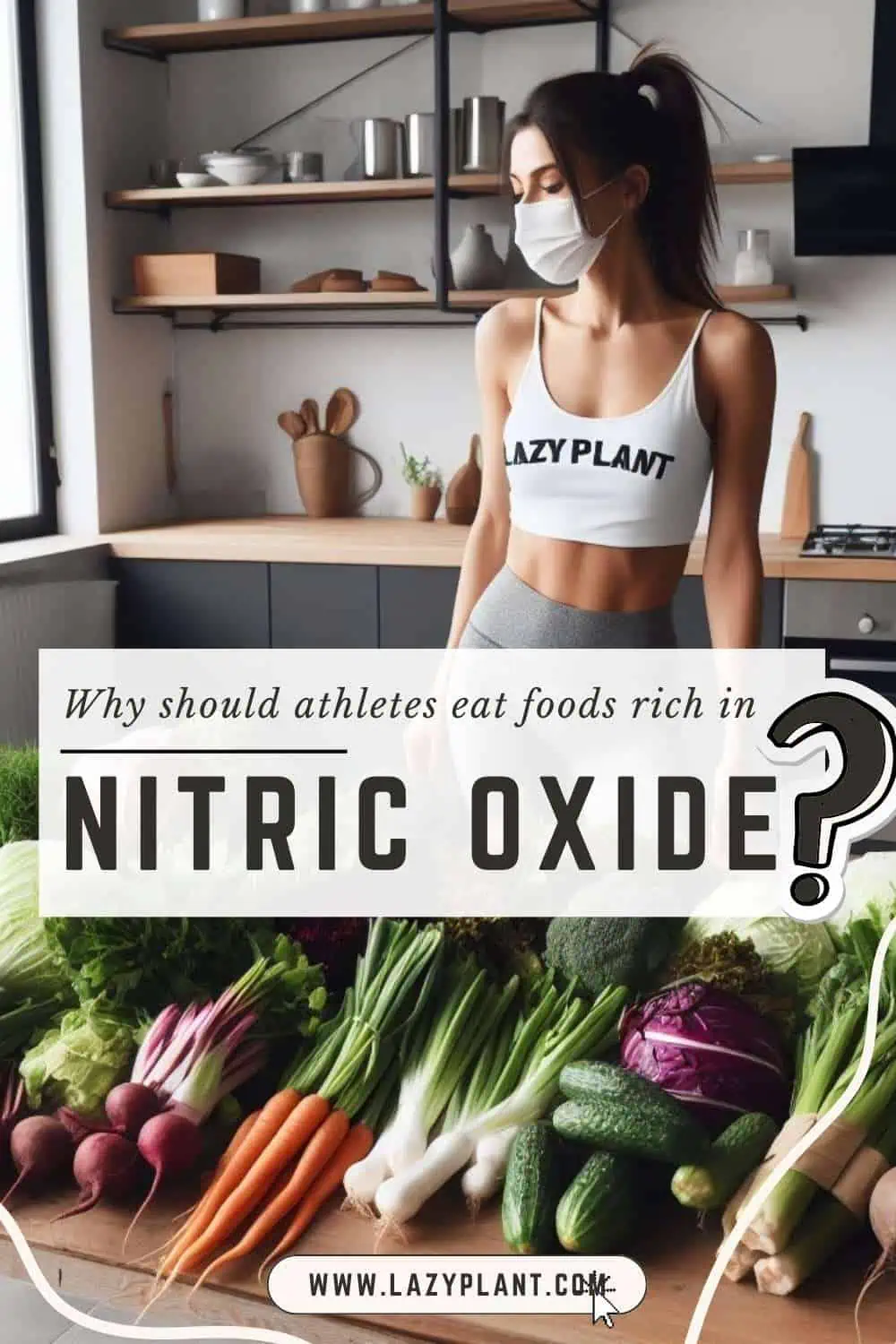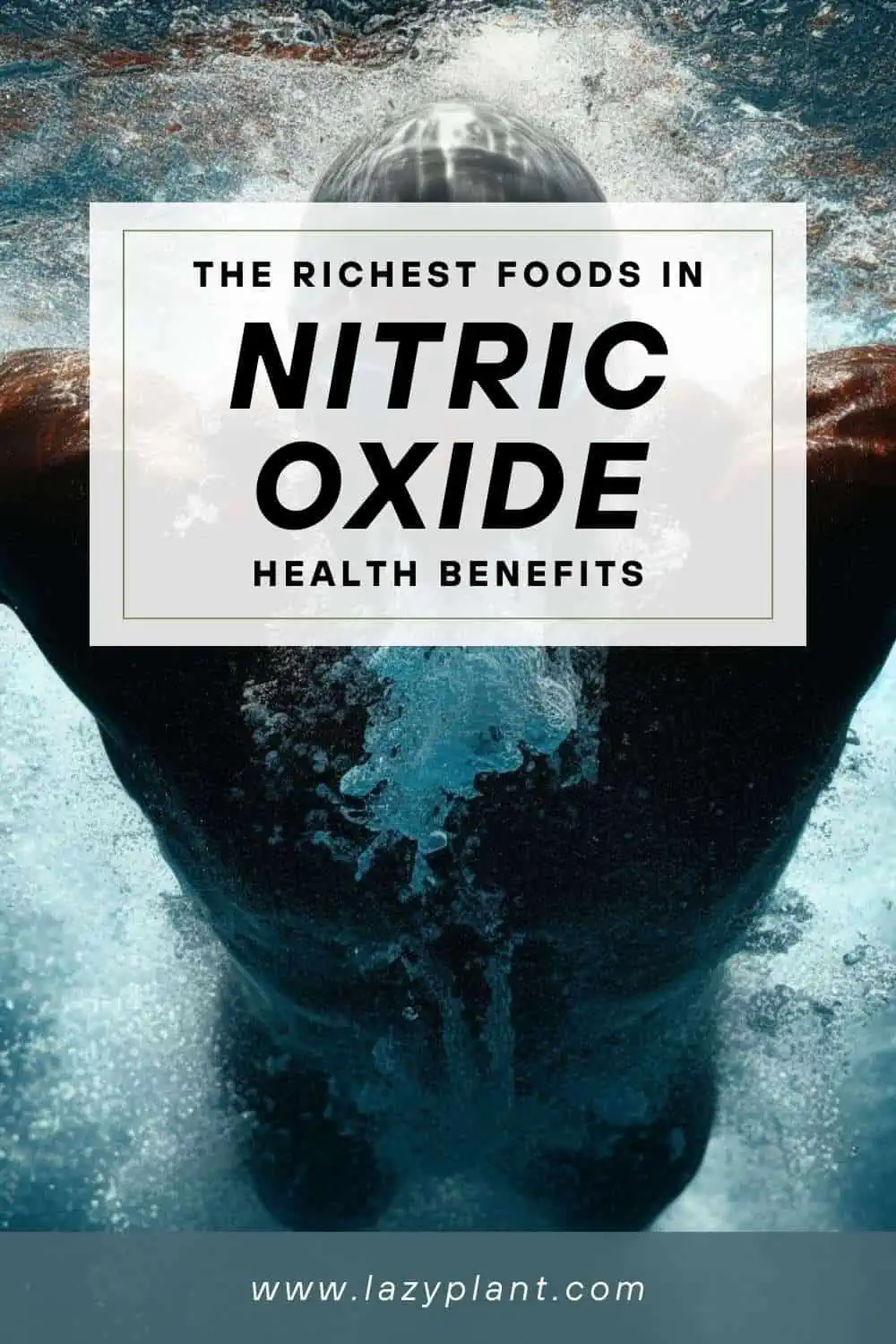Consuming foods naturally rich in nitric oxide, such as beets, lettuce, arugula, spinach, and celery may substantially improve athletic performance, as nitric oxide increases oxygen supply and blood flow to the muscles!
What are nitrates?
Nitrates are compounds that are naturally present in food. When we consume foods rich in nitrates, the human body transforms them into nitrites.
Nitrites can be either healthful or harmful:
- nitric oxide is the “good” nitrites (from vegetables and fruits)
- nitrosamines are the “bad” nitrides (from cured meat)
When are nitrates harmful?
Certainly, nitrates from processed meats are pretty bad for you. They turn into carcinogenic compounds. They’re added to meat for its preservation. Nitrites in meat turn into nitrosamines, which are powerful carcinogens.
So, it’s better for your health to avoid consuming cured meat, such as hot dogs or bacon. In fact, the American Cancer Society and the World Health Organization classify processed meat as a carcinogen to humans.[1]
Furthermore, according to the National Cancer Institute, cooking meat causes the formation of carcinogenic chemicals, known as HCAs and PAHs. Pan-frying or grilling of beef, pork, fish, or poultry may cause these dangerous compounds.[2]
On the contrary, nitrates from vegetables are beneficial. Antioxidants in plants inhibit nitrosamine formation.[3]
For instance, vitamin C may prevent the formation of dangerous nitrosamines. Vitamin C is only abundant in fruits and vegetables. Orange, lemon, grapefruit, cauliflower, broccoli, and peppers are only a few foods high in vitamin C.

Nitric oxide delivers more oxygen to tissues
Actually, foods high in nitric oxide play an important role in physiological activity. In fact, foods high in nitric oxide may help the body supply blood and oxygen to the muscles more effectively.
According to a study, people who drank beetroot juice walked 18% longer.[4]
Furthermore, scientists found that people consumed less oxygen when exercising at a low intensity, after consuming foods high in nitric oxide. Even people who don’t exercise regularly can benefit.[5]
Beetroot juice is particularly high in nitrates. Therefore, runners and other endurance athletes could drink it before a race.
Even people with claudication pain (narrowed arteries impairing blood flow to legs) could benefit from drinking pure natural beetroot juice and other foods high in nitrates. Furthermore, foods rich in nitrates may increase blood flow in the brain. Nitrates may protect against age-associated dementia and cognitive decline.[6]
Moreover, foods high in nitrates may be beneficial for stroke, myocardial infarction, or high blood pressure.

You can find a wide variety of organic beetroot powders on iHerb.
Athletes should eat foods naturally high in nitric oxide
According to a 2018 study, elite athletes benefited from nitrate intake. They drank a beetroot juice before running. Beetroot juice is one of the richest foods in nitrates. After 2 weeks of drinking beetroot juice, elite runners increased their time to exhaustion. In addition, 500 mg of nitrates may help runners run faster.[7,8]
According to another study, beetroot juice enhanced maximal muscle power. Athletes in sports, where brief explosive actions are needed, may also benefit.[9]
According to another study, the consumption of nitrate-rich green leafy vegetables can:[10]
- reduce resting blood pressure
- enhance exercise tolerance
- reduce the oxygen cost of submaximal exercise
- enhance exercise performance.
Above all, nitric oxide appears to reduce oxygen cost during exercise, due to improved mitochondrial function. Mitochondria regulate cellular metabolism and produce energy. They are the powerhouses of cells.

Consuming foods rich in Coenzyme Q10 could also have a beneficial effect.
Also, increased nitrate consumption from beetroot juice improved the oxygen consumption of breath-hold divers.[11]
Most noteworthy, we should consume only plant-based foods high in nitric oxide. Nitrates from other sources, such as processed meat, may have detrimental effects on our health.
Also, it’s better to avoid nitrate supplements. They may have beneficial effects on athletic performance, but we don’t know if their long-term consumption is safe.
Healthy foods rich in nitric oxide for athletes
Foods naturally high in nitric oxide are green leafy vegetables, such as spinach, lettuce, arugula, and radishes, as well as Chinese cabbage, parsley, and beetroots.
| Nitrates (mg/100g) | |
| spinach | 3-600 |
| lettuce | 12-550 |
| turnip greens | 480 |
| arugula (rocket) | 480 |
| beetroot | 180-470 |
| radishes | 420 |
| endive | 190-340 |
| Bok choy | 102–309 |
| celery | 290 |
| kohlrabi | 270 |
| carrot | 22-195 |
| Chinese cabbage | 42-161 |
| cabbage | 25-125 |
| mustard greens | 116 |
| broccoli | 44 |
| eggplant | 25–42 |
| tomato | 39 |
| potato | 18 |
| cucumber | 14 |
| pepper | 12 |
| onion | 11 |
| cauliflower | 8,5 |
| garlic | 3,5 |
| asparagus | 3 |
The nitrate content of food can vary greatly, depending on the variety, season of harvest, soil, storage methods, and many more factors.
For instance, organic vegetables have fewer nitrates than regular produce, as farmers don’t use nitrogen fertilizers.
| Nitrate content (mg/100g) | Vegetables |
| Very low, <20 | Artichoke, asparagus, broad bean, cauliflower, cucumber, eggplant, garlic, onion, green bean, mushroom, peas, pepper, potato, summer squash, sweet potato, tomato, watermelon |
| Low, 20 to <50 | Broccoli, carrot, pumpkin, chicory |
Middle, 50 to <100 | Cabbage, dill, turnip, savoy cabbage |
| High, 100 to <250 | Celeriac, Chinese cabbage, endive, fennel, kohlrabi, leek, parsley |
| Very high, >250 | Celery, cress, chervil, lettuce, red beetroot, spinach, arugula (rocket) |
How to naturally increase nitric oxide concentrations?
Furthermore, you can naturally increase nitric oxide concentrations in the body by reducing the use of mouthwash. Along with harmful bacteria, mouthwash kills the beneficial ones that produce nitric oxide.
Moderate exercise can play a crucial role in nitric oxide levels as well. It improves endothelial function which also enhances the synthesis of nitric oxide.

Also, the consumption of foods rich in antioxidants can significantly improve nitric oxide status, as antioxidants protect this vulnerable molecule.
For instance, flavonoids stimulate nitric oxide production. One great natural source of flavonoids is grapefruit juice. In fact, grapefruit juice is packed with so many vitamins, minerals, and antioxidants that it’s considered one of the best drinks for athletes and fitness enthusiasts.